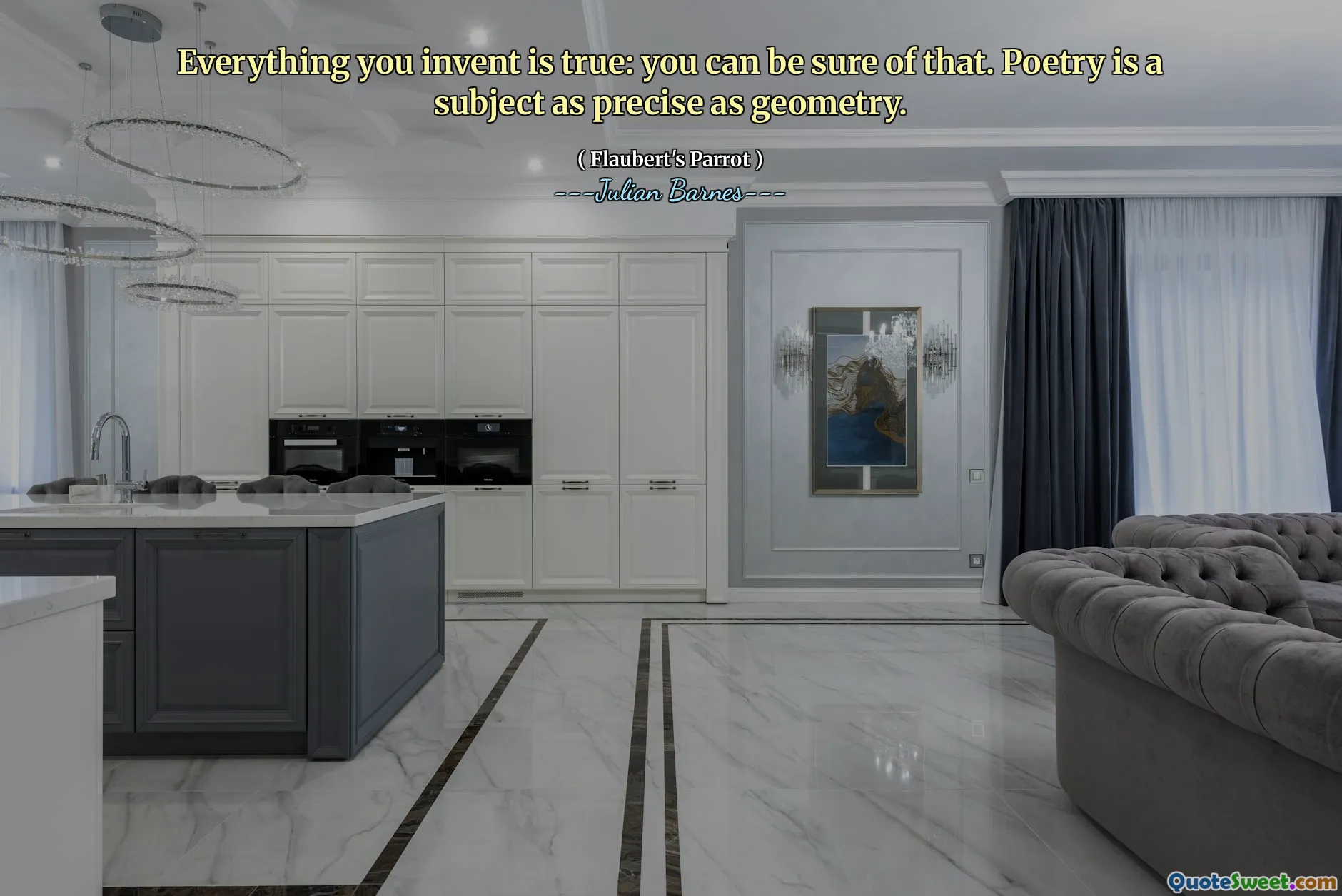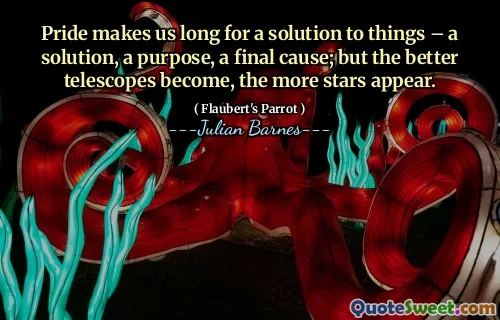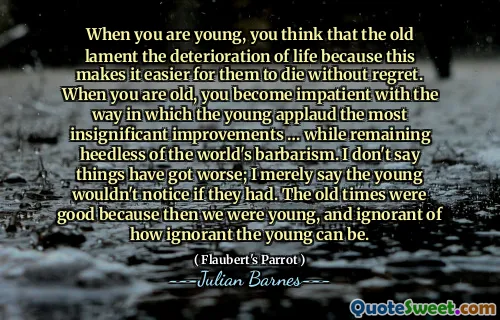
Everything you invent is true: you can be sure of that. Poetry is a subject as precise as geometry.
This quote highlights the intriguing interplay between creativity and certainty. At first glance, it suggests that all inventions—whether literal or conceptual—hold an element of truth within their own framework. There's an underlying acknowledgment that human imagination can generate realities that feel as solid and definitive as mathematical truths. Poetry, often perceived as fluid and interpretive, is claimed here to possess a degree of precision comparable to geometry, a discipline rooted in exactness. This challenges the common notion that poetry is purely subjective and emotional, implying instead that it has its own internal logic and structure. Such a perspective elevates poetry from mere artistic expression to a formal discipline where boundaries and rules can be established, much like in mathematics. Recognizing truth in invention encourages us to view creativity not as a random process but as a pursuit that requires discipline, clarity, and rigour. It suggests that the beauty and power of both poetry and invention lie in their capacity to forge new understanding and reality—ones that are as concrete as the accepted truths of geometry. This perspective invites us to appreciate the precision, craftsmanship, and belief involved in creative endeavors. It also prompts reflection on the broader idea that human perception and expression possess their own unique form of truth, which can be as reliable and definite as scientific or mathematical principles. Embracing this view fosters a deeper respect for the arts and the inventive spirit, recognizing their role in shaping our understanding of reality.









